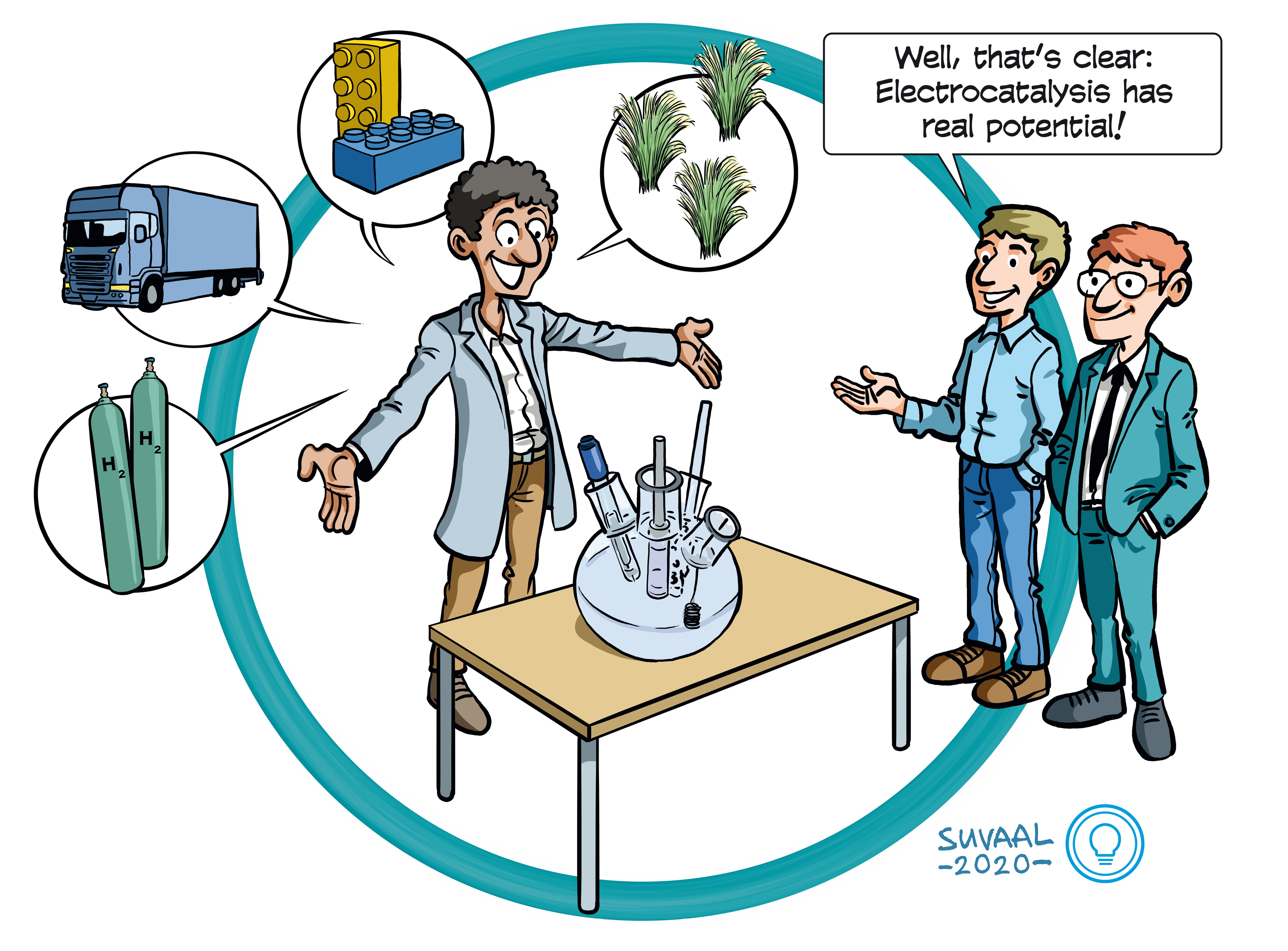Electrocatalysis for Energy Storage & Conversion
Research Themes: Energy, Chemistry, Bio & process technology


A TRL is a measure to indicate the matureness of a developing technology. When an innovative idea is discovered it is often not directly suitable for application. Usually such novel idea is subjected to further experimentation, testing and prototyping before it can be implemented. The image below shows how to read TRL’s to categorise the innovative ideas.
Summary of the project
The researcher focusses on electrochemical conversions that are relevant for renewable fuel production and the electrification of the chemical industry, for instance the conversion of CO2 into valuable chemicals, production of ammonia from N2 and water splitting to hydrogen and oxygen. More specifically, his research focusses on the electrocatalysts that are involved in these conversions. Current catalysts exhibit high over potentials; meaning you have to invest more energy for the reaction to take place than theoretically needed. He tries to get a better understanding of how electrocatalyst work in order to develop novel electrocatalysts that can more efficiently speed up electrochemical conversions. He aims to develop novel stable, selective and cheap catalysts by manipulating the various atoms in catalytic particles so we for instance no longer have to use scarce earth materials in their design. Besides designing catalysts for electrochemical processes he also aims to develop sequential catalytic processes, where multiple electrocatalytic steps are linked to each other, to produce chemicals for which we currently don’t have such an electrochemical process. The major advantage of turning thermochemical conversions into electrochemical ones is that you would only need electricity to run the process at an ambient pressure and temperature, leading to possibly smaller, more energy efficient and safer factories.
What's next?
The next step for this research is to find the optimal process conditions for the developed catalysts and to subsequently integrate them into an (industrial) reactor for it. For a further scale-up of these reactors the research would benefit from more contacts with industry so they can be applied in a relevant environment.
Contribution to the Energy transition?
With the help of mechanistical insights, modelling and theory predictions the researcher contributes to solving contemporary energy problems by developing new electrocatalytic systems and devices.
dr. Ruud Kortlever
e-refinery initiative
Faculties involved
- 3ME
